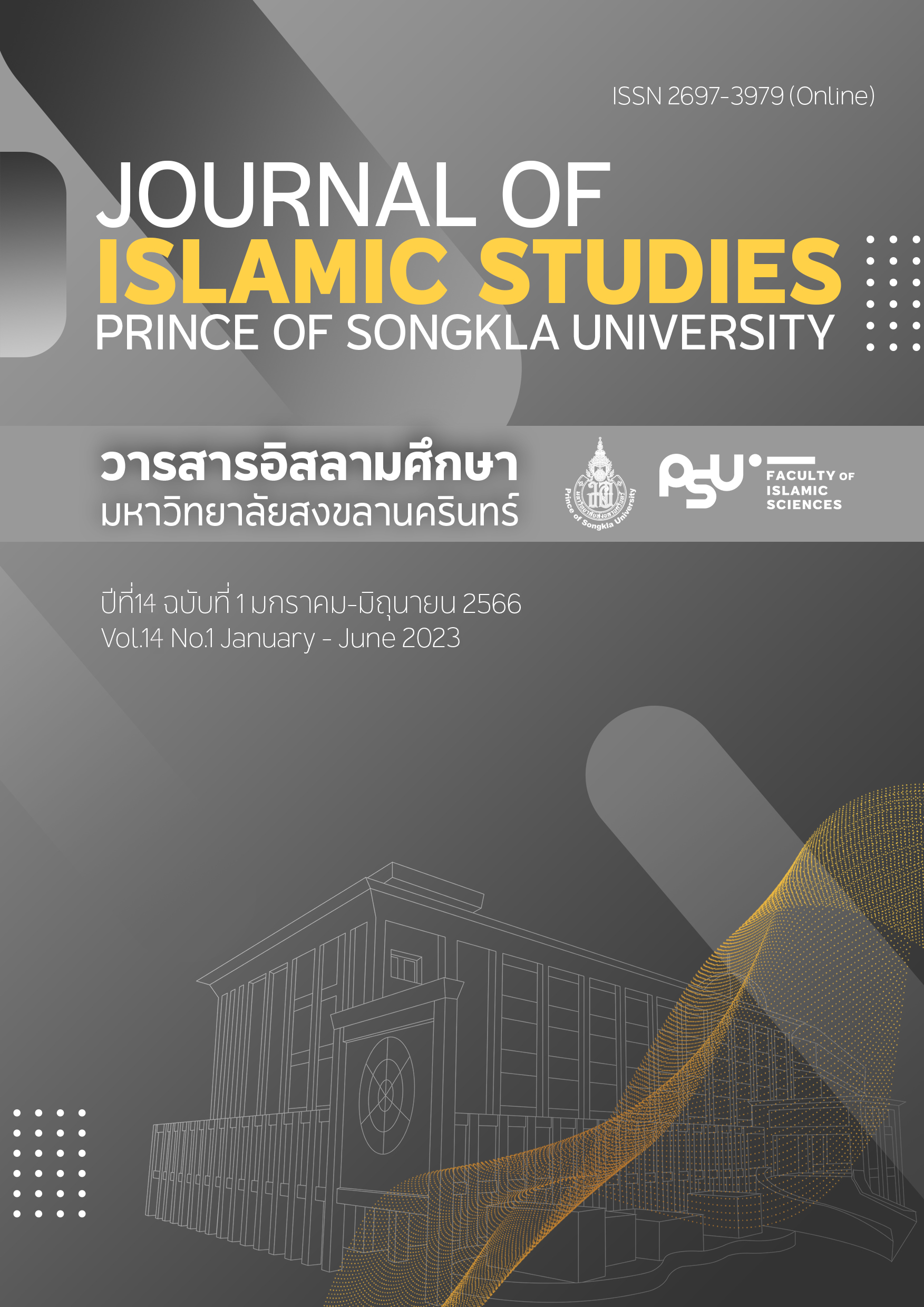Evolution of the concept of Istihsan (Legal Preference) in the Maliki school of thought
Keywords:
Legal Preference, Maliki school of thought, concept, Keywords: Legal Preference, Maliki school of thought, concept, Evolution.Abstract
Objective: This research seeks to study the problem of the concept of Legal Preference in the Maliki school of thought, and the researcher tried to answer a pivotal question, which is: What is the reality of the concept of Legal Preference in the Maliki school of thought? What is the origin of this principle?
Methodology: Due to the nature of the problem of this research, the researcher followed the descriptive analytical approach to display and discuss the information related to the title.
Research Finding: The researcher concluded that the definitions that were presented during the research are a response to the deniers of Legal Preference, as its concept was not specific in the early era, and that was the cause of denial and rejection, but the concept became more clear among the successors and later scholars of the doctrine, it also became clear that Legal Preference is not merely the acceptance of what the soul tends to applaud. Instead, it is an origin based on the legal principles as its counterparts from the different regulations in it.
Contribution: After conducting the research process, it became clear that the research contributes to lifting the delusional ambiguity about the definition of Legal Preference on the one hand, and shows the position of the Sharia on this principle and the extent of its validity in the process of protesting the rulings of the Sharia.
References
Abd, W. K. (1993). Sources of Islamic Legislation in What There Is No Text (7th Ed). Dar Al-Qalam for Publishing and Distribution.
Abdul Karim, Z. (n.d). Al-Wajeez in Usul al-Fiqh. Cordoba Foundation.
Al-Bahsain, Y. A. (2001). Raising Al-Harajah in Islamic Law (4th ed). Al-Rushd Bookshop.
Al-Baji, W. B. (1973). The Book of Borders in Al-Usool. verified by: Nazih Hammad, Encyclopedia Al-Raani.
Al-Baji, W. B. (1995). Ihkam Al-Fusul fi Ahkam Al-Usool (2nd ed). Achieved by: Abdul Majeed Turki. Dar Al-Gharb Al-Islami.
Al-Fayoumi, A. M. (n.d). Al-Misbah Al-Munir. Scientific Library.
Al-Fayroozabadi, M. T. (2005). Al-Qamous al-Muhit, Heritage Investigation Office in the Al-Risala Foundation (8th ed). Al-Risala Foundation for Printing Publishing and Distribution.
Al-Ghazali (1998). extracted from the Commentaries of the principle (3rd Ed). Achieved by: Muhammad Hassan Hito. Dar Al-Fikr Al-Moaser.
Al-Jurjani, A. M. (1983). Definitions. Achieved by: A group of scholars. Dar Al-Kutub Al-Ilmiyyah.
Al-Kafawi, A. M. (n.d). A Dictionary of Terminology and Linguistic Nuances. Achieved by: Adnan Darwish - Muhammad Al-Masry. Al-Risala Foundation.
Al-Qaradawi, Y. (1996). Towards the Fundamentals of Facilitated Jurisprudence. Boys Library.Department of Periodicals, Yearbook of the College of Sharia, Law and Islamic Studies.
Al-Sarkhasi, M. A. (n.d). The principles of Al-Sarkhasi. Dar Al-Maarifa.
Al-Shafi’i, A. M. (1940). Al-Risala. Achieved by: Ahmed Shaker. His Al-Halabi office.
Al-Shatibi, I. M. (1997). Al-Muwafaqat. Verified by: Abu Ubaidah Mashhour bin Hassan Al Salman. Dar Ibn Affan.
Al-Walati, M. Y. (2006). The Path to the Origins of the Imam Al-Malik School. Commentary: Murad Boudaya. Dar Ibn Hazm.
Al-Zarqa, M. A. (2004). The General Jurisprudential Introduction (2nd ed). Dar Al-Qalam.
Ibn al-Arabi, M. A. (2003). Ahkaam al-Qur’an (3rd ed). Commentary: Muhammad Abdul Qadir Atta. Dar al-Kutub al- ‘Ilmiyyah.
Ibn Ashour, M. T. (1341). A footnote to clarification and correction of the problems of the book of revision. Nahda Library, Nahj al-Jazeera.
Ibn Farhoun, I. A. (1986). Insight of the rulers in the origins of districts and the approaches to rulings. Al-Azhar Colleges Library.
Ibn Hazm, A. A. (1404). Al-Ihkam fi Usul Al-Ahkam. Dar Al-Hadith.
Ibn Manzoor, M. M. (n.d). Lisan al-Arab. Dar Sader.
Ibn Rushd, W. M. (2004). The Beginning of the Mujtahid and the End of the Muqtadid. Dar al-Hadith.
Khaled, K. A. (2017). What is the approval denied by Al-Shafi’i. Journal of Renewal, International Islamic University, 12(41).
Muhammad, A. Z. (2007). Fundamentals of Jurisprudence. Dar Al-Fikr Al-Arabi.
Najia, R. (2018). Lectures on the Principles of Jurisprudence.
Najm al-Din, O. M. (1311). Tolbat al-Talaba. Al-Mataba’ al-Amira. al-Muthanna Library in Baghdad.
Noureddine, M. A. (2005). Teaching the Science of Fundamentals (2nd ed). Obeikan Library.
Wahba, Z. (1986). Fundamentals of Islamic Jurisprudence. Dar Al-Fikr for Printing, Publishing and Distribution.
Zain al-Din, A. M. (1999). Mukhtar al-Sihah (5th ed). Achieved by: Yusuf al-Sheikh Muhammad. Al-Maqtaba al-Asriyyah.Al-Dar Nawthaziiyah.
Downloads
Published
How to Cite
Issue
Section
License
Copyright (c) 2023 © The Author(s). Published by the Journal of Islamic Studies, Prince of Songkla University under the Creative Commons Attribution 4.0 International License.

This work is licensed under a Creative Commons Attribution 4.0 International License.
All articles Published in The Journal of Islamic Studies are author’s opinions, and not the responsibility of the Faculty of Islamic Sciences nor the editorial board. However any citation should be referred to the journal.
















